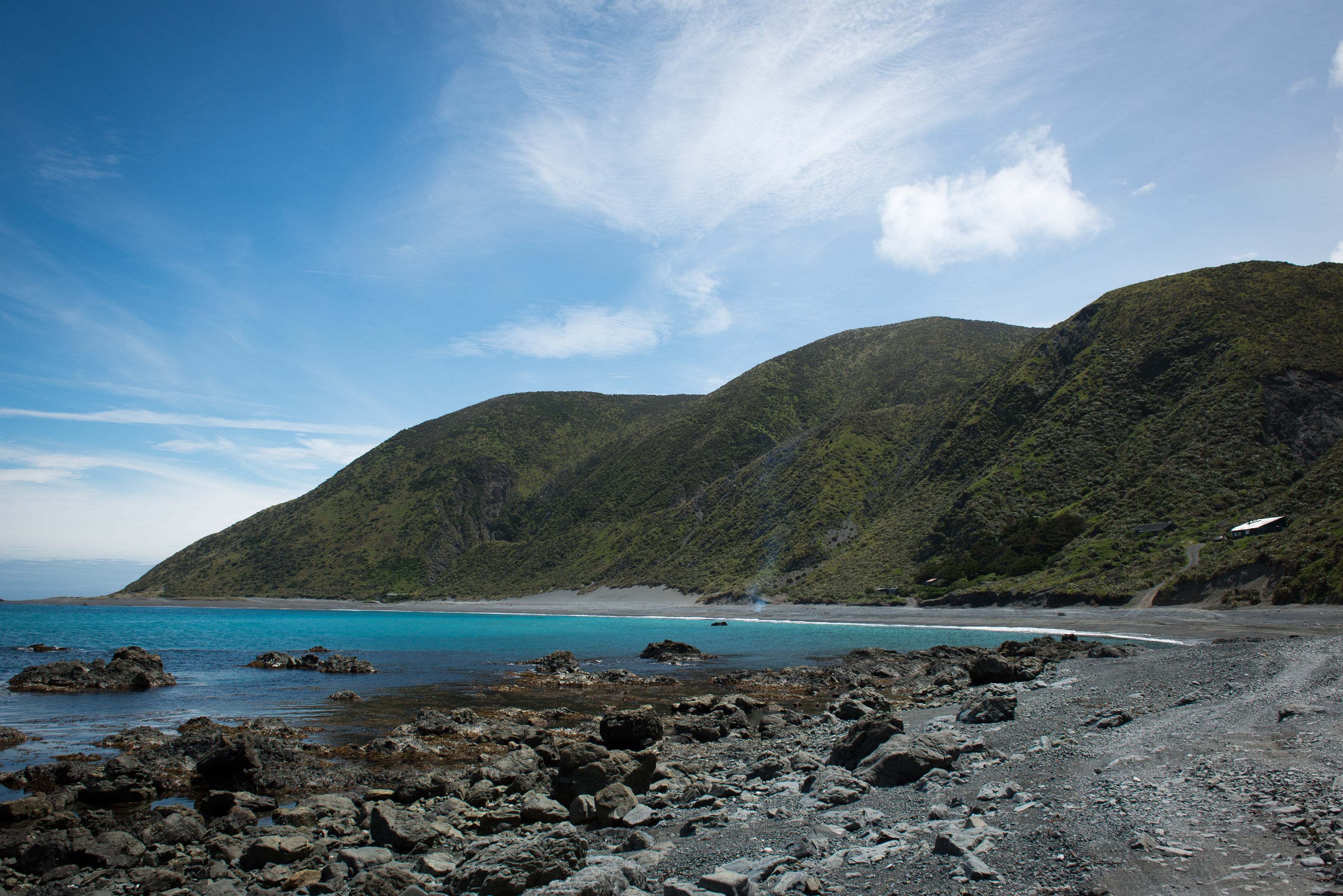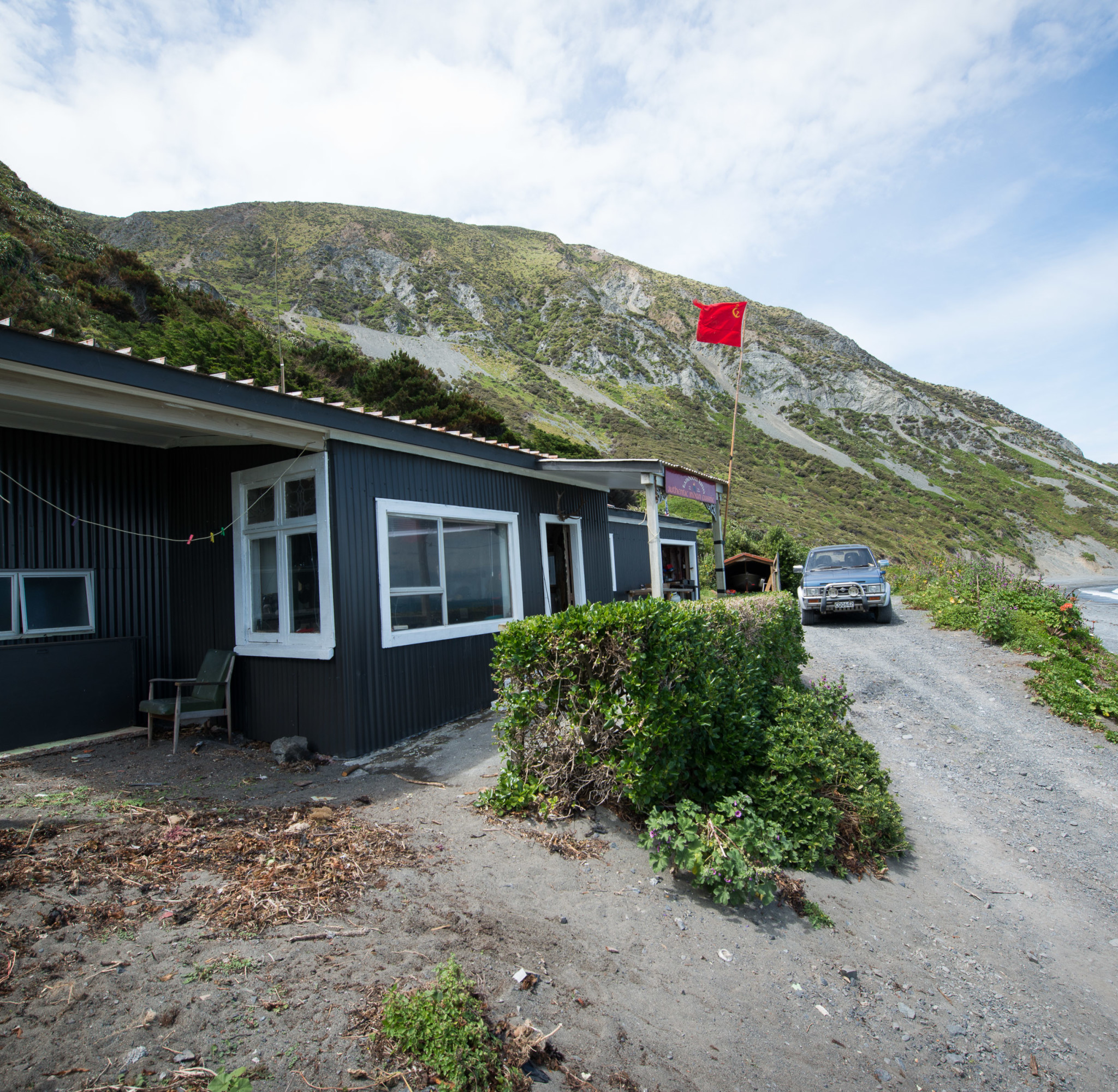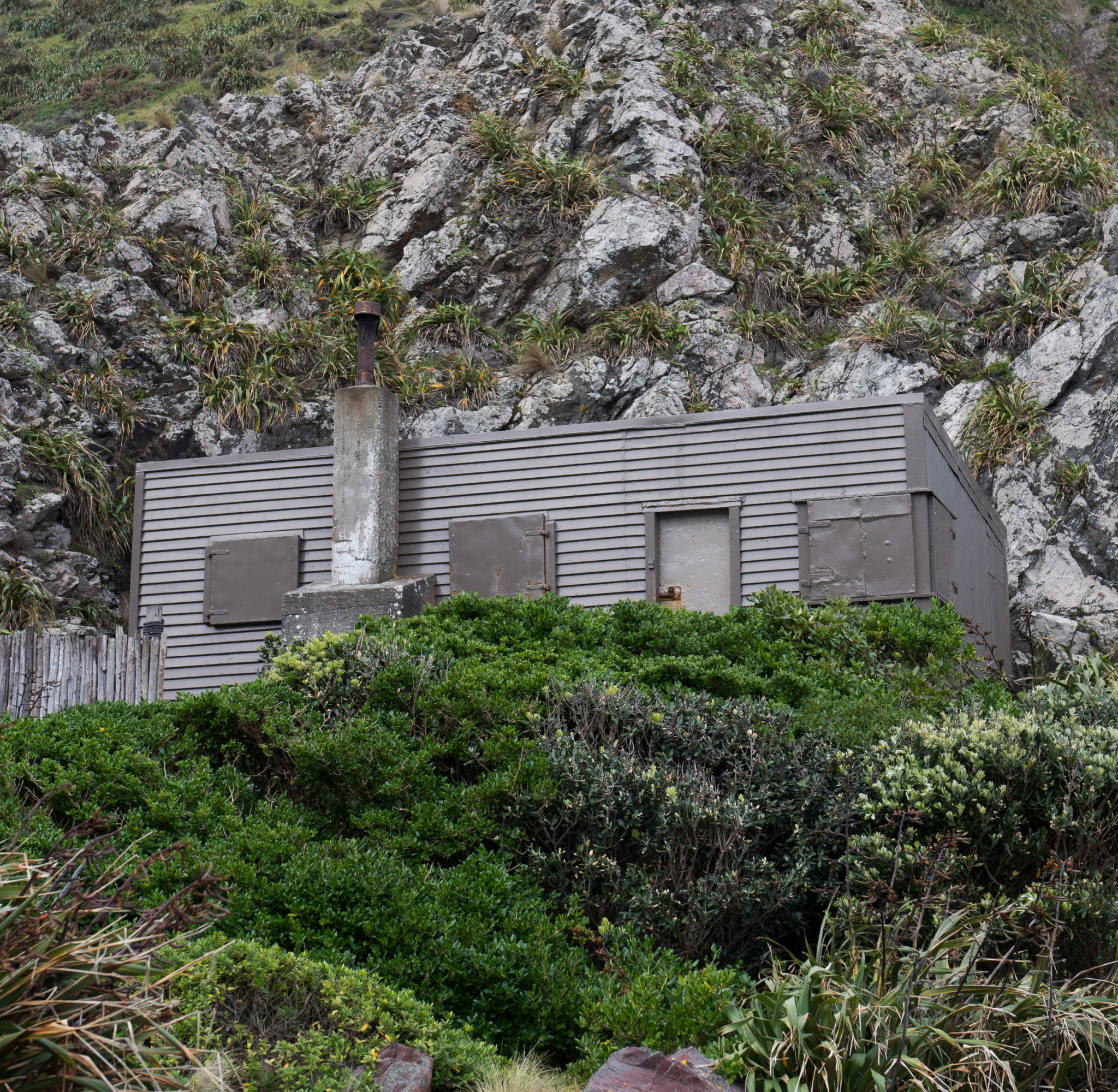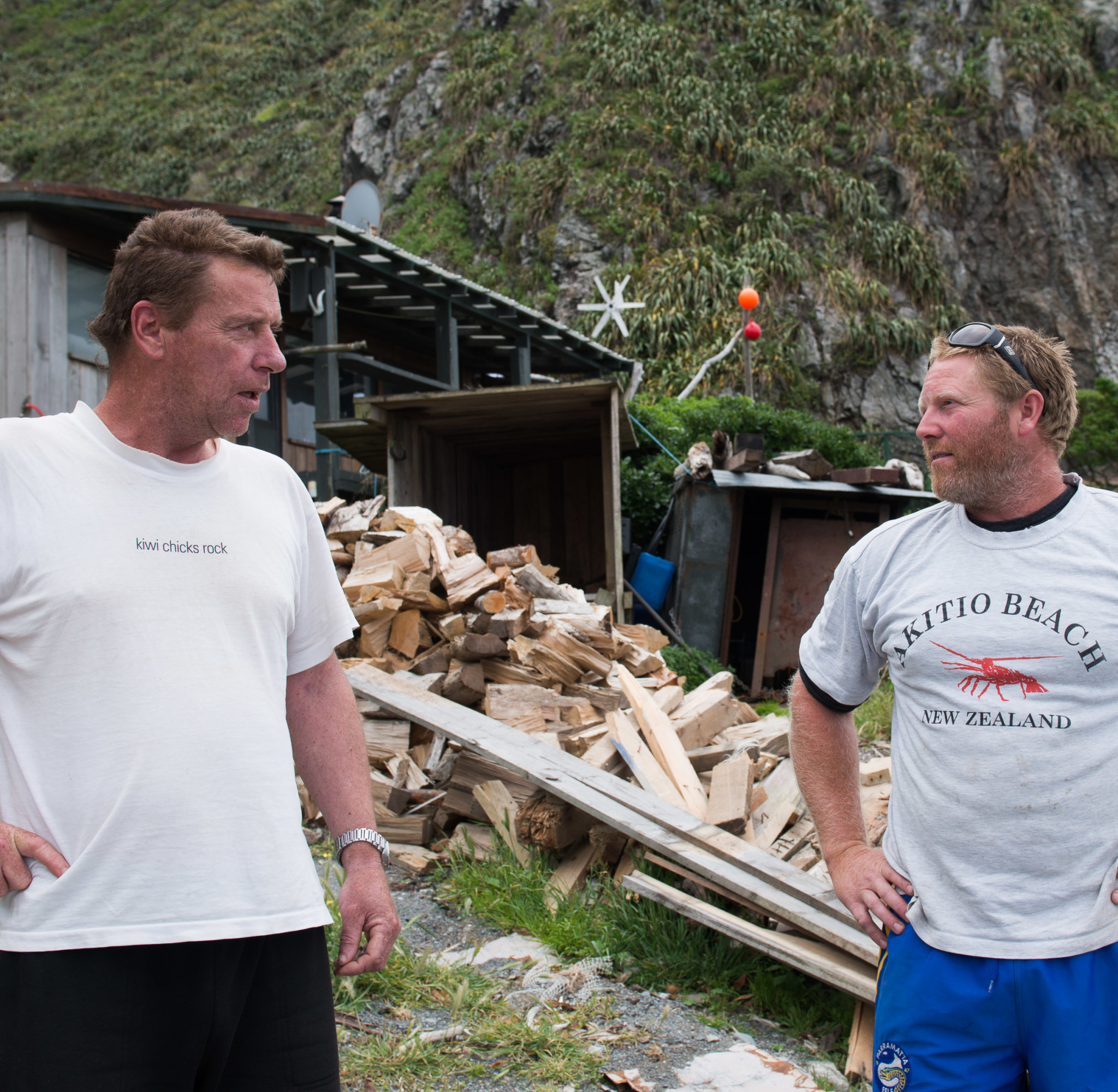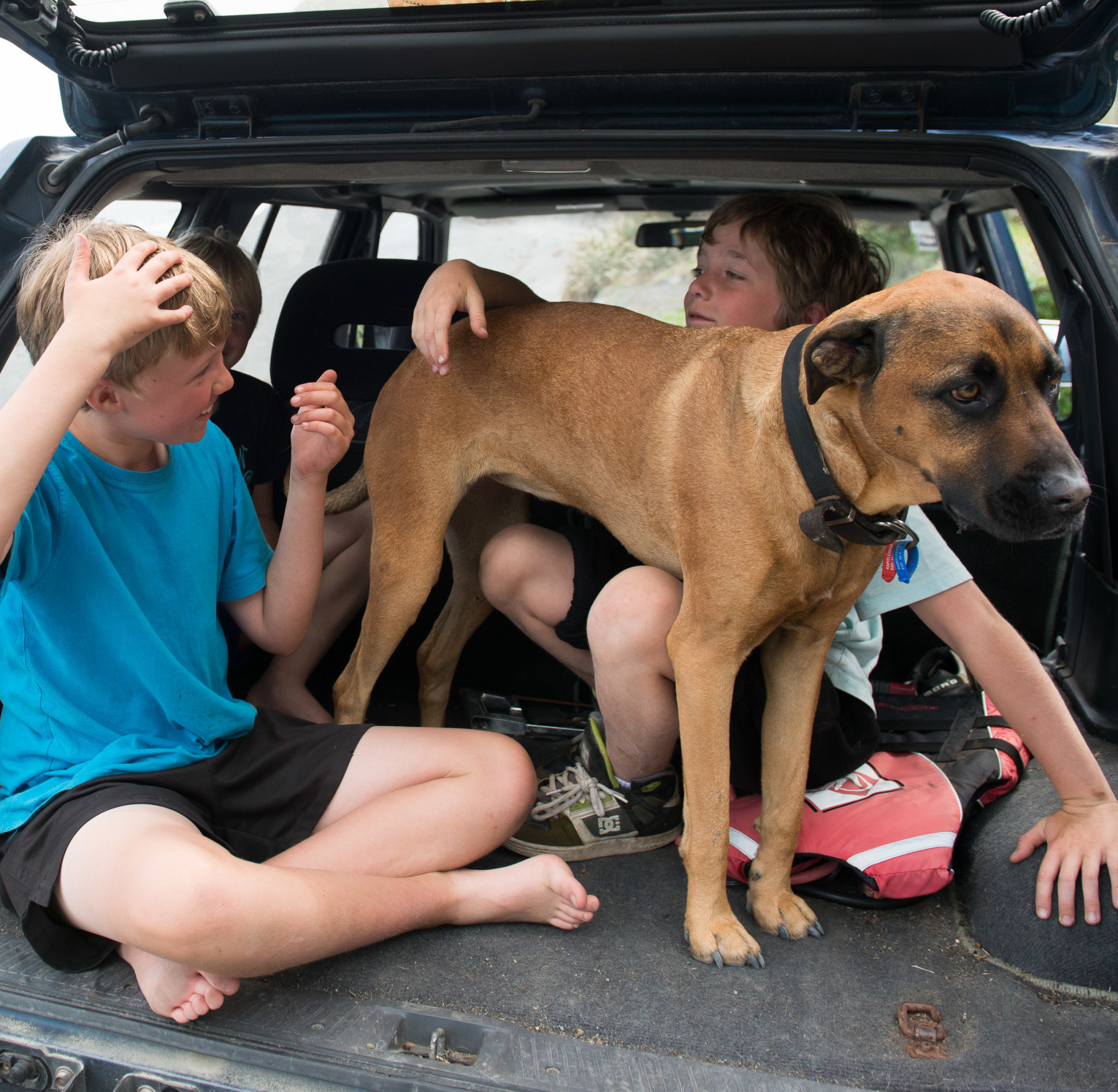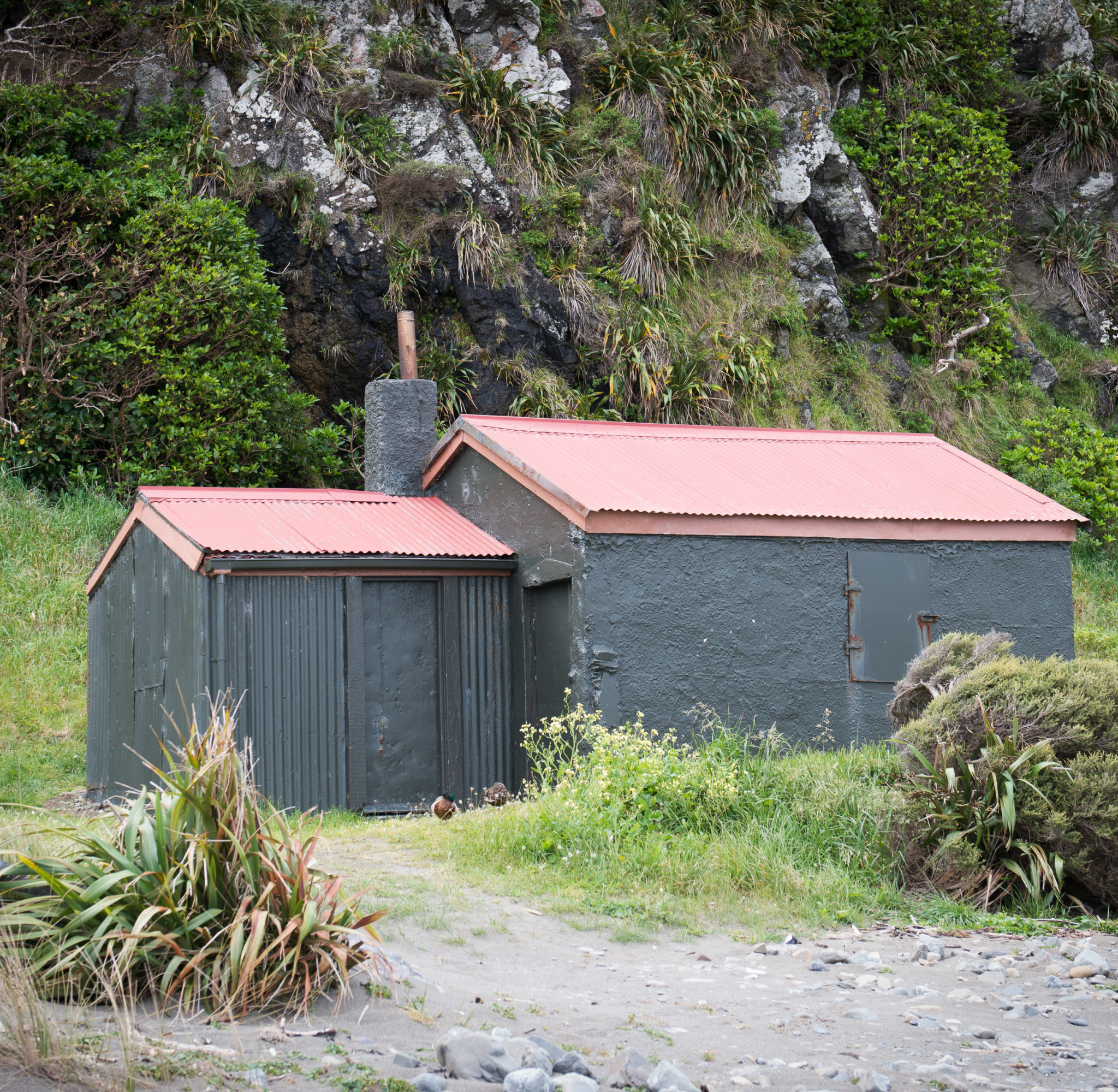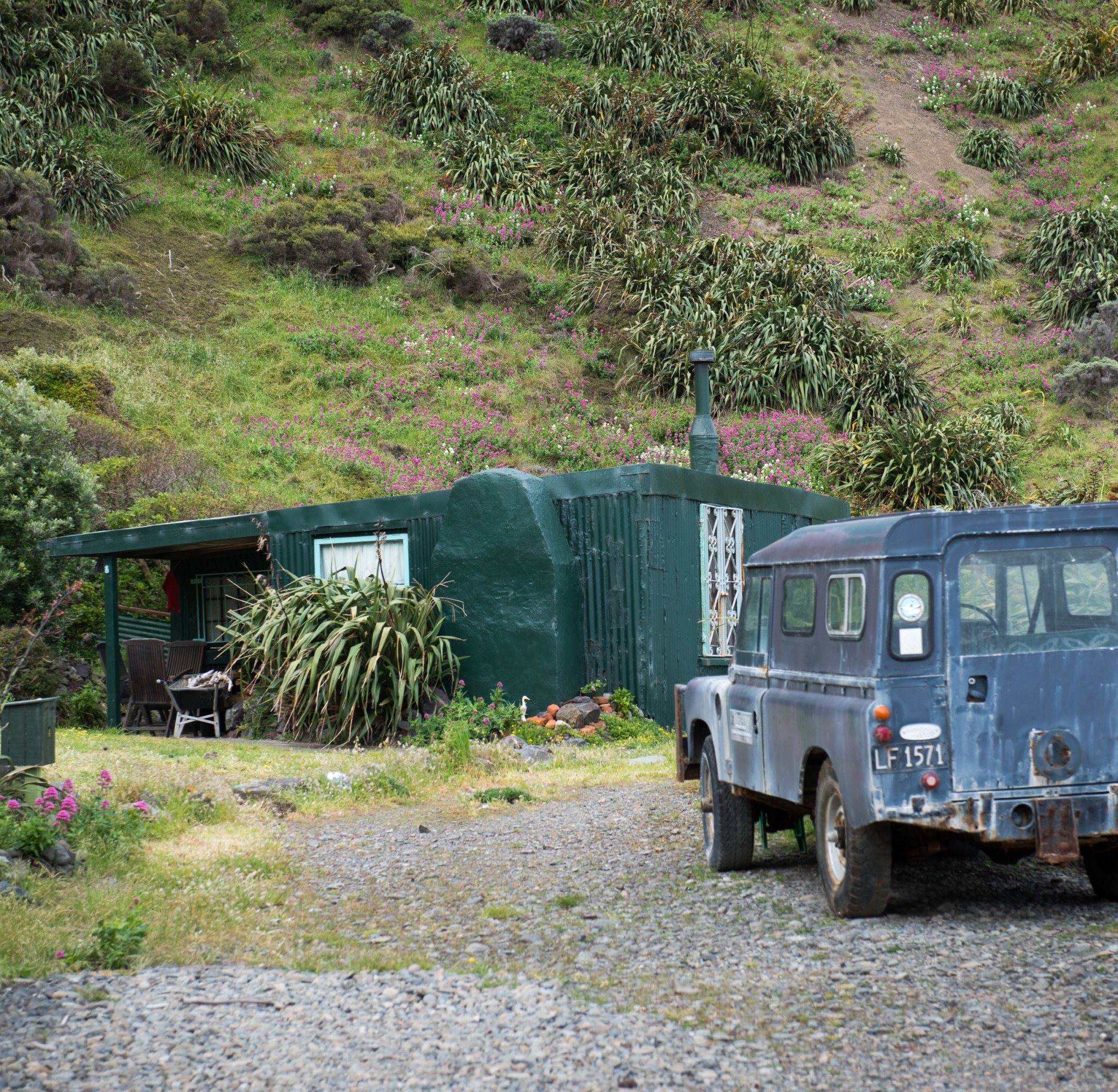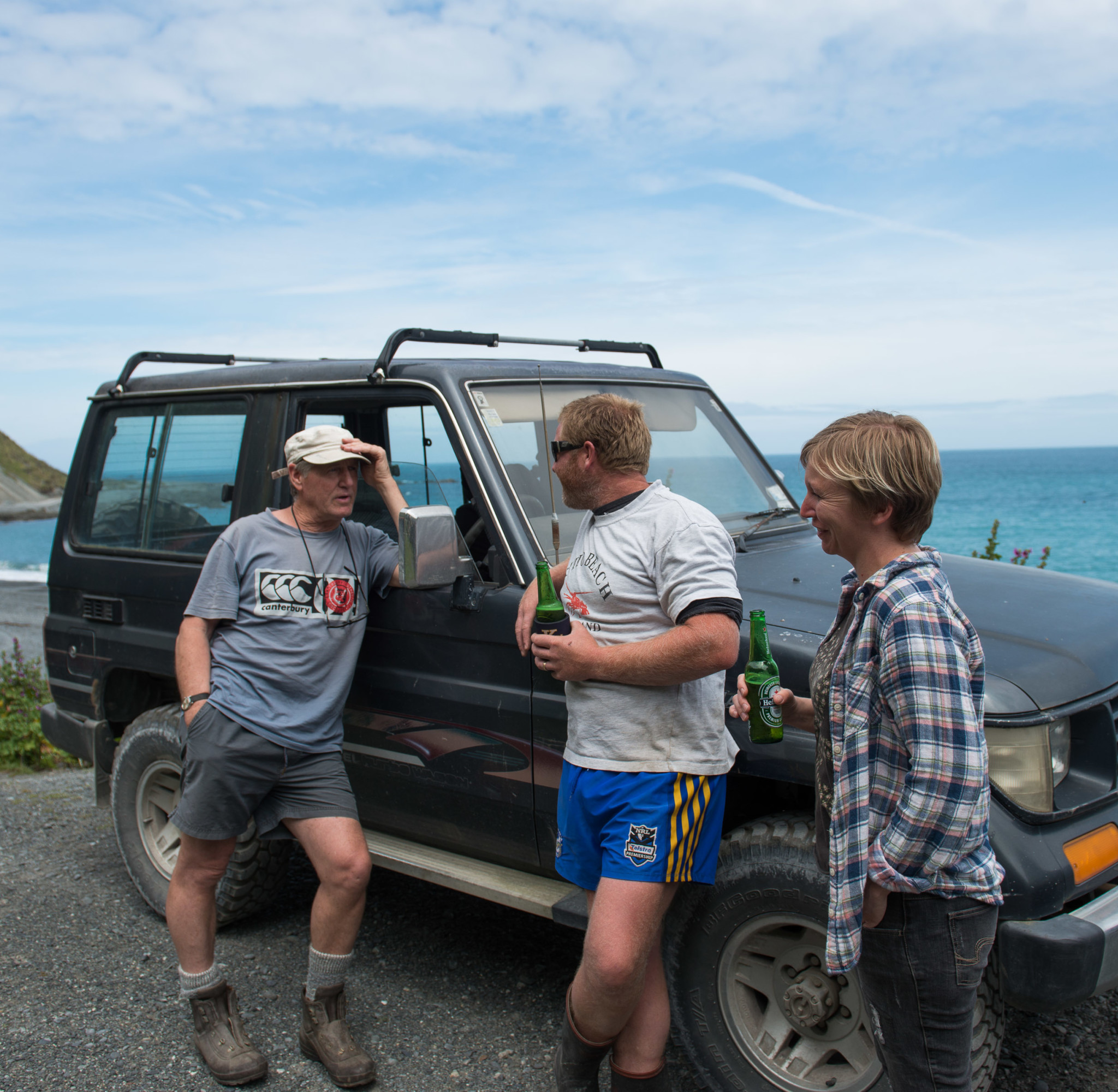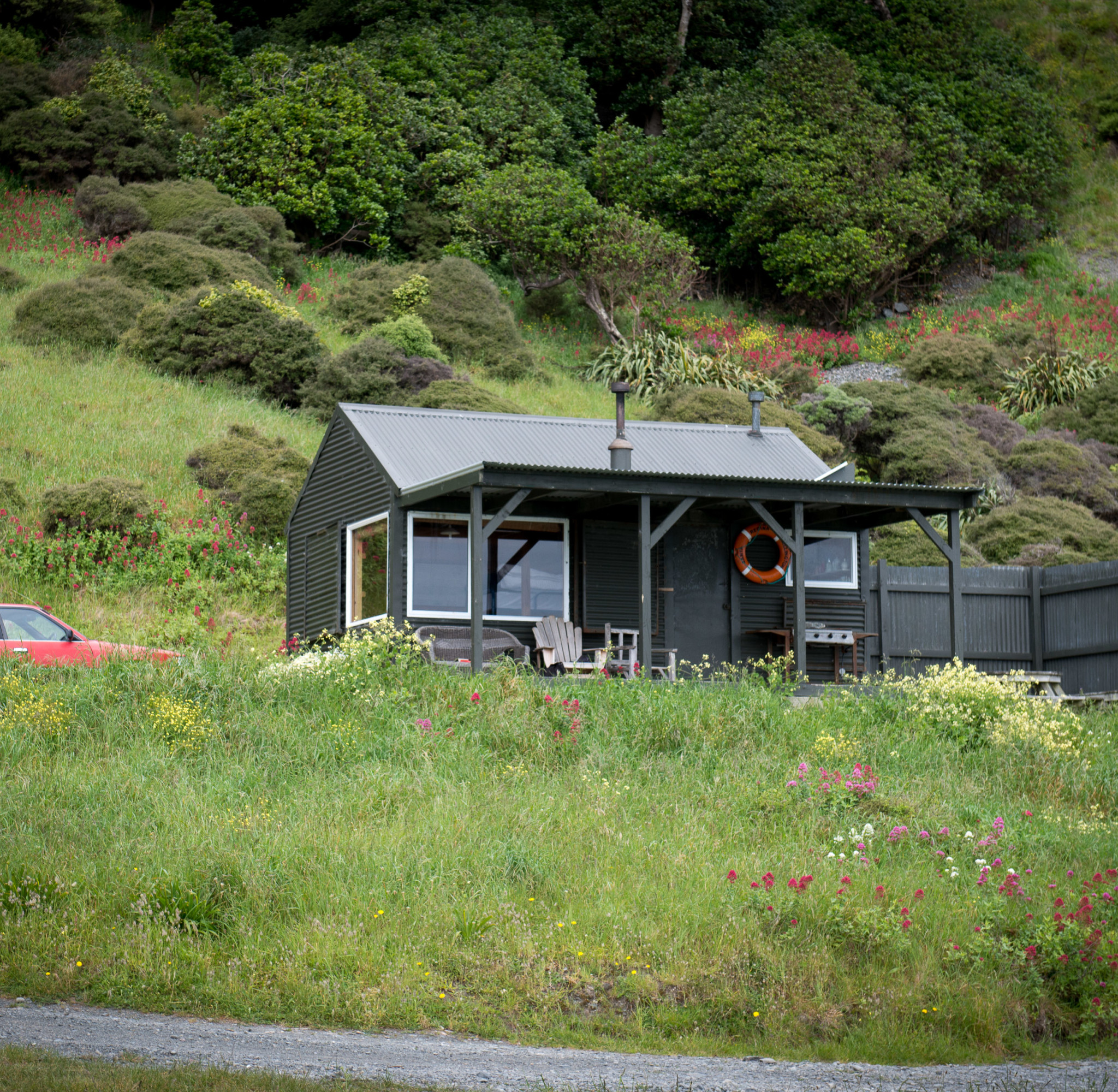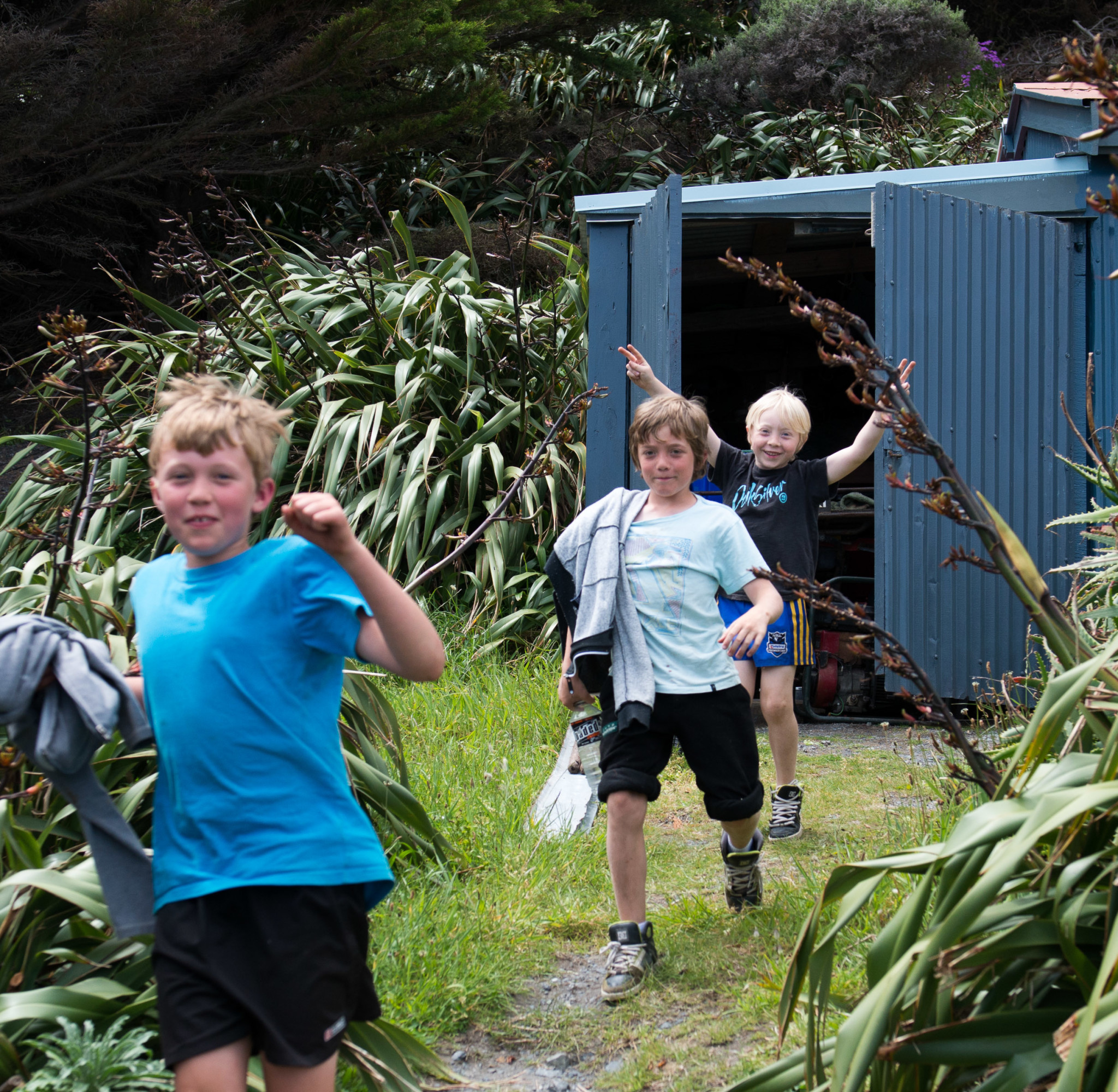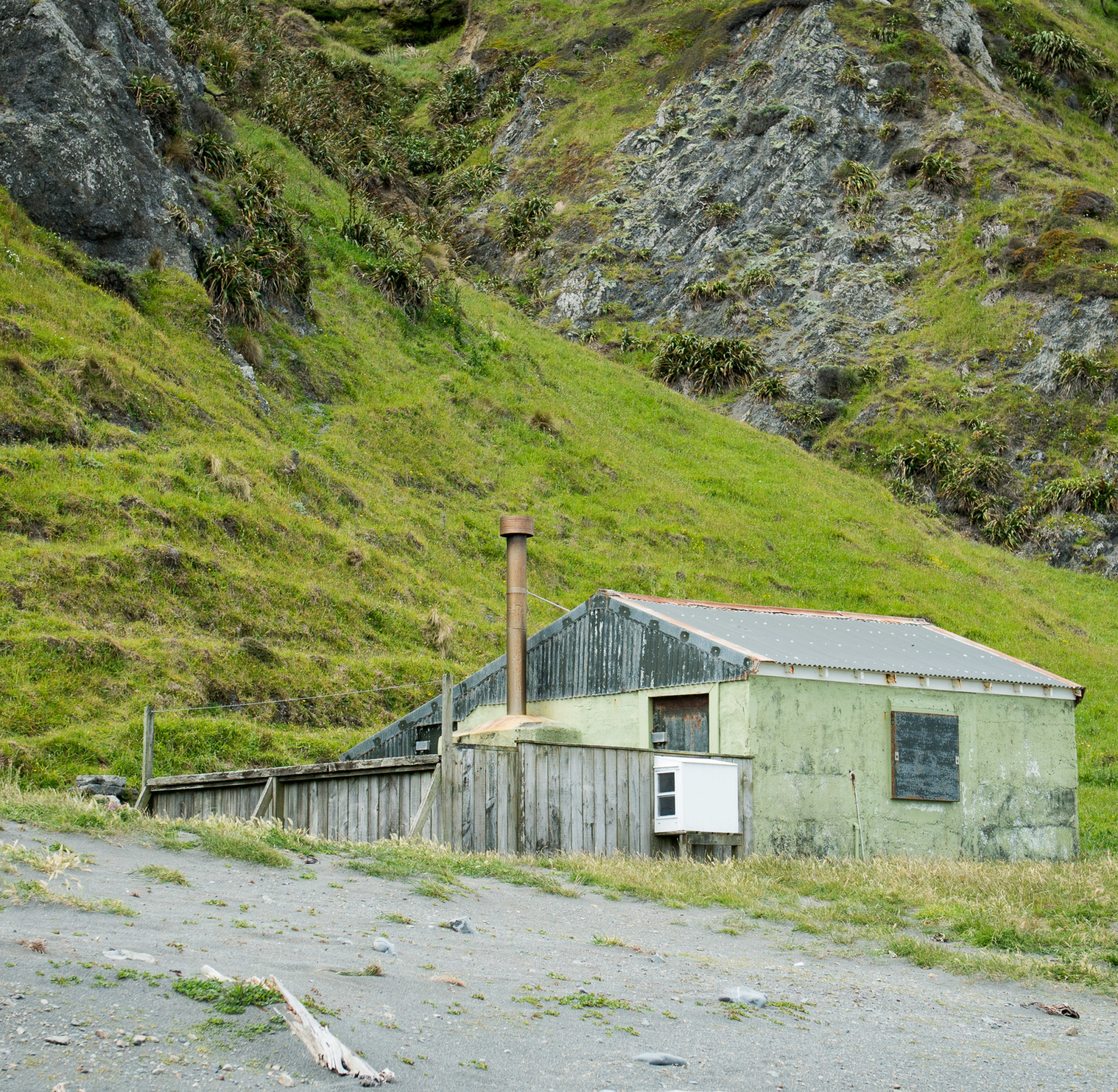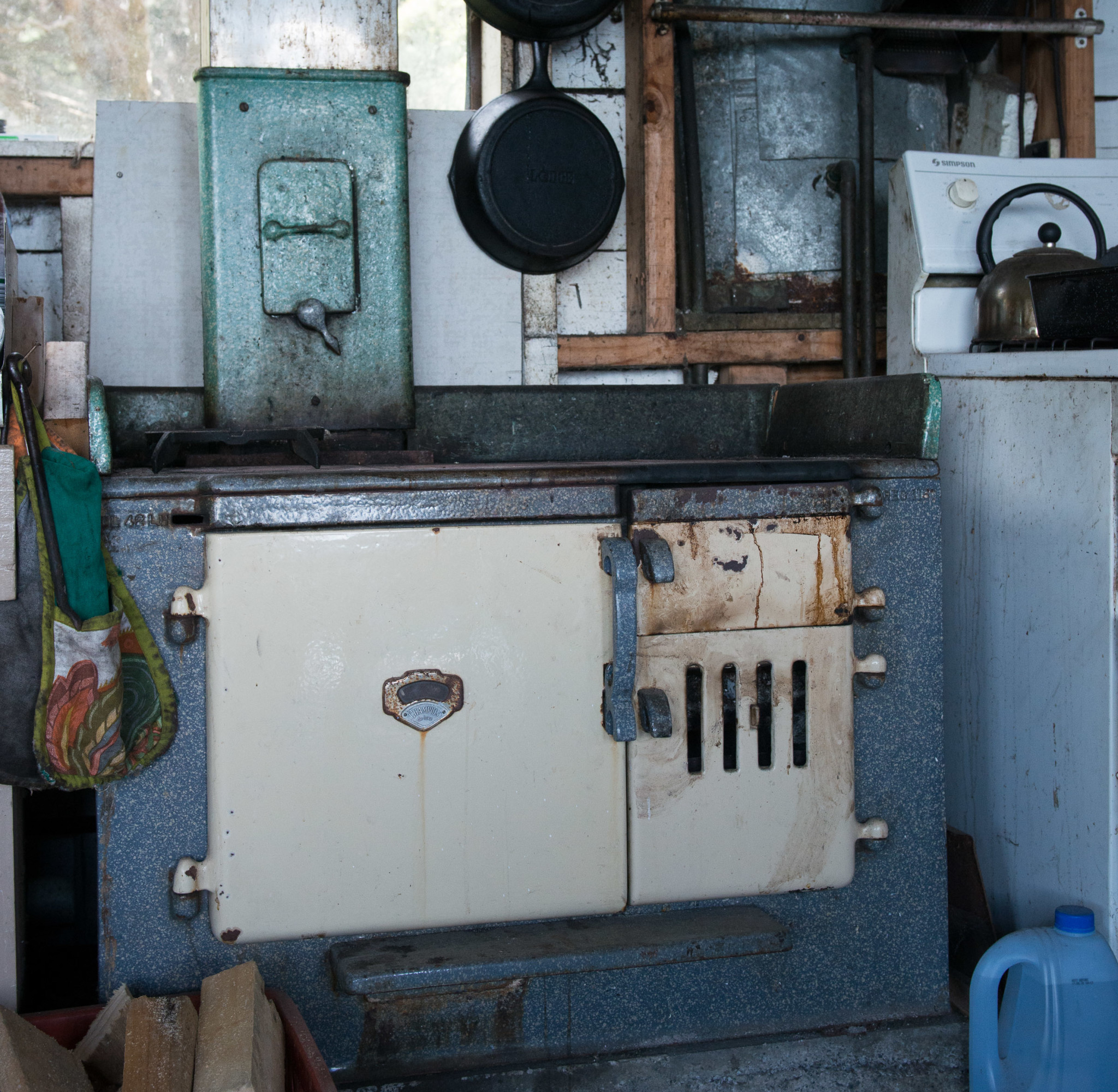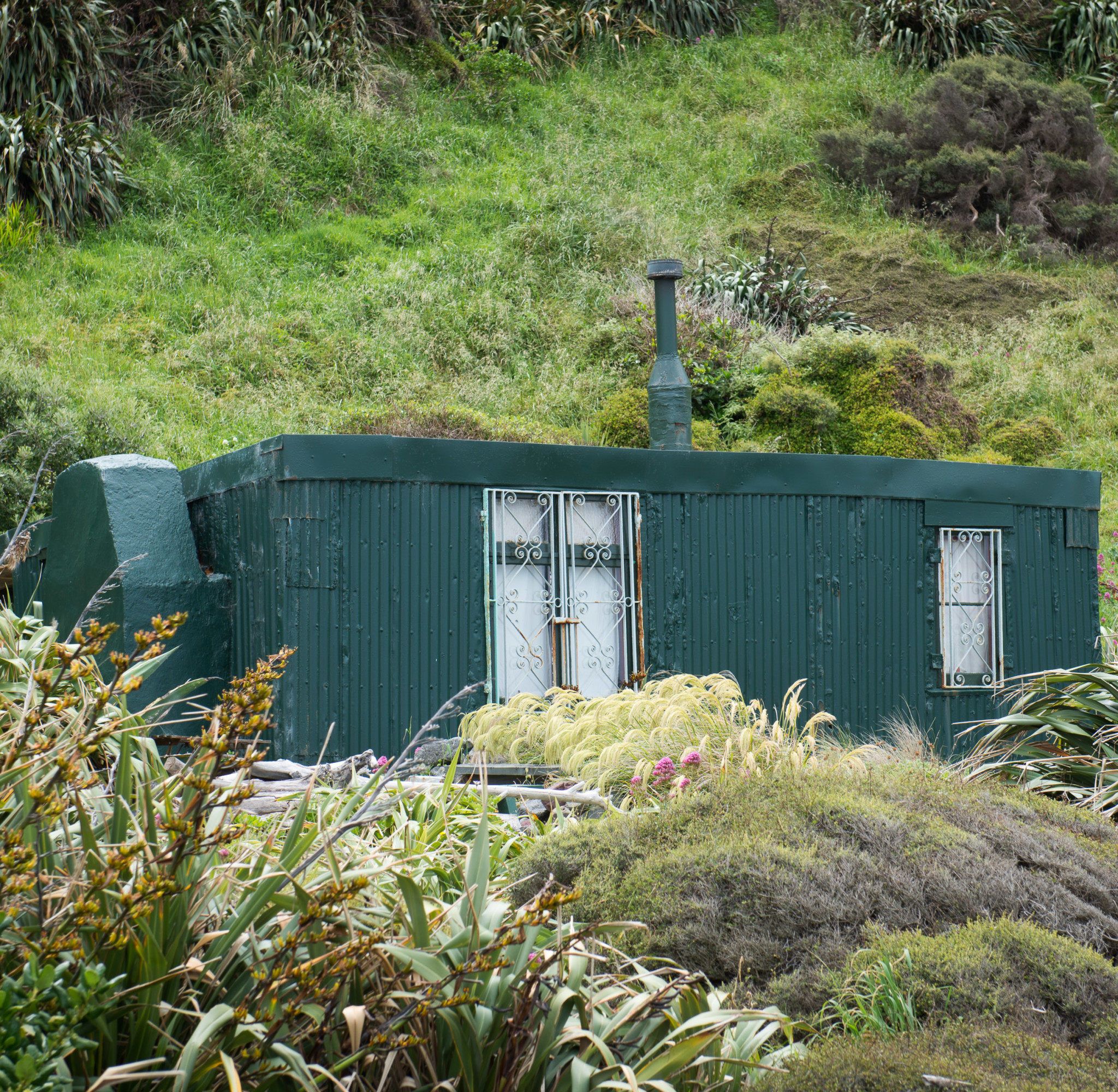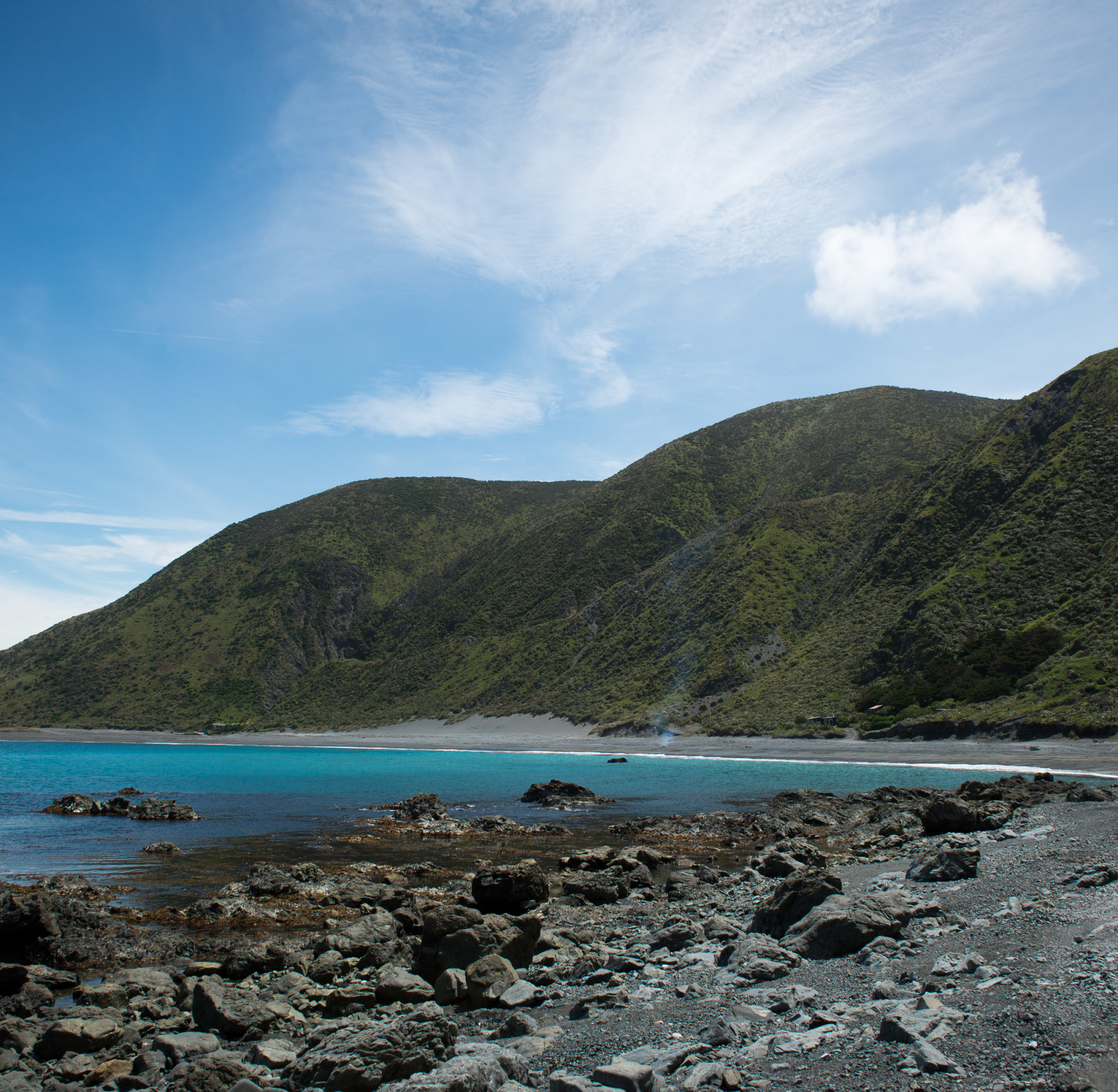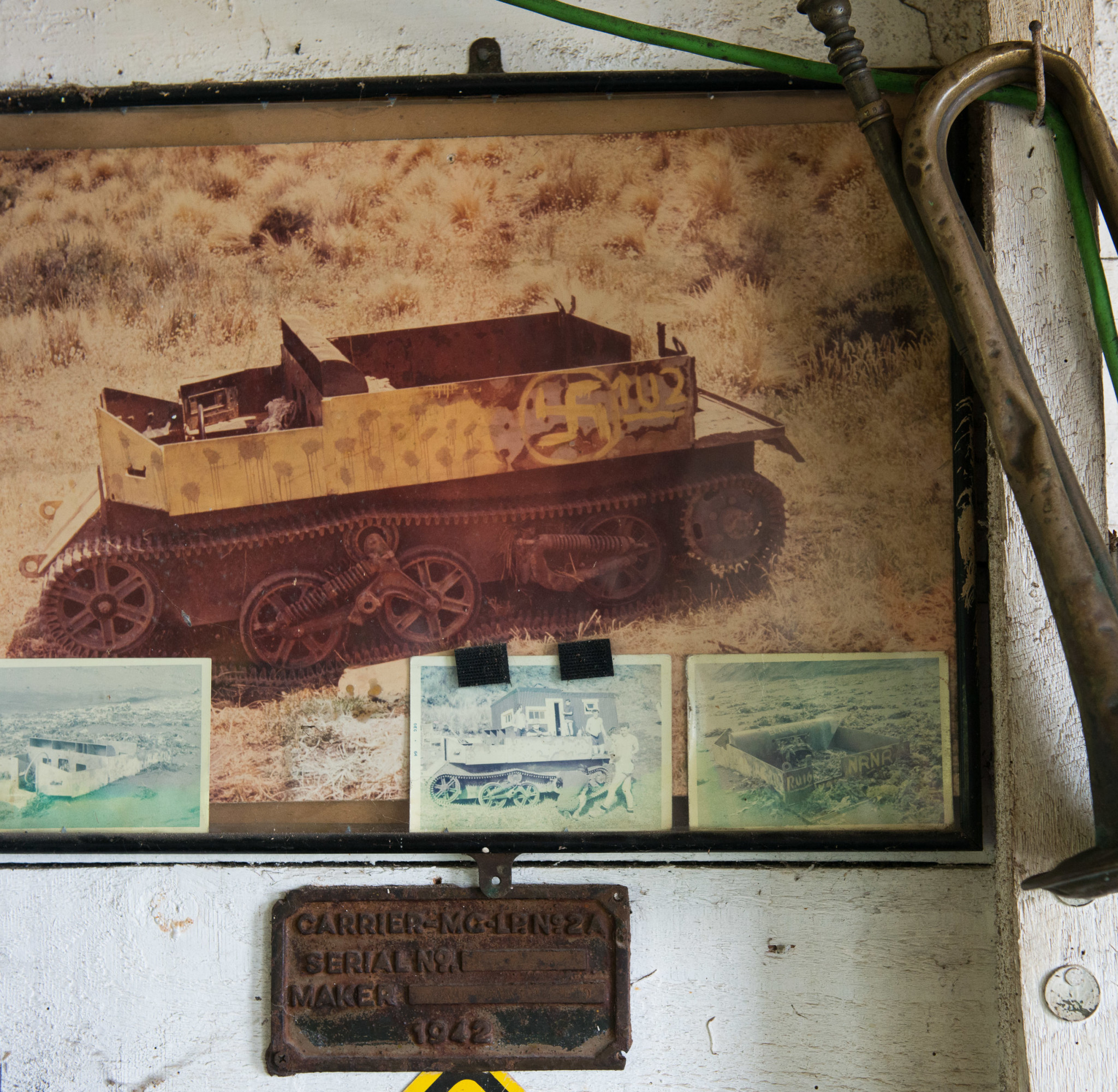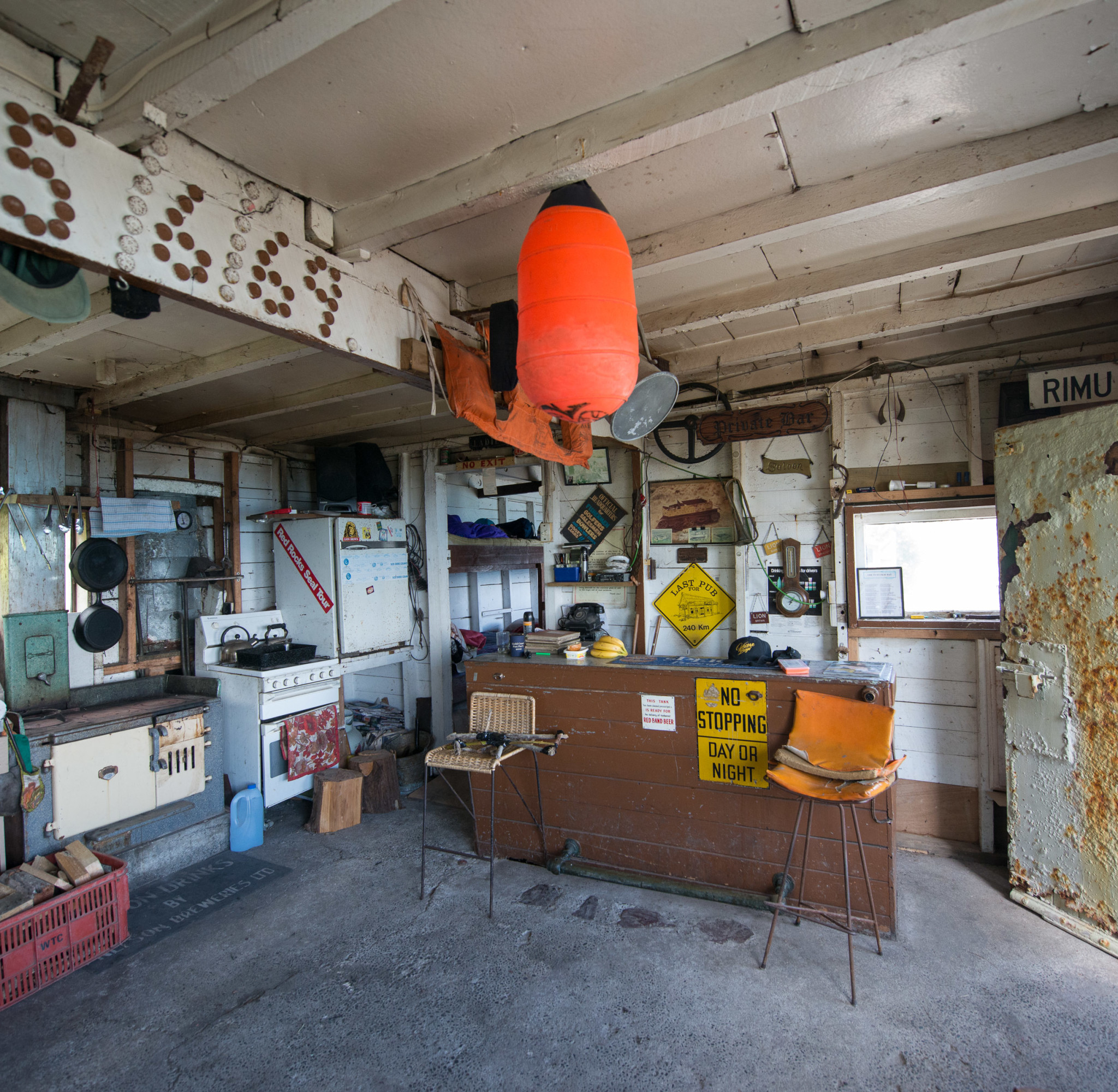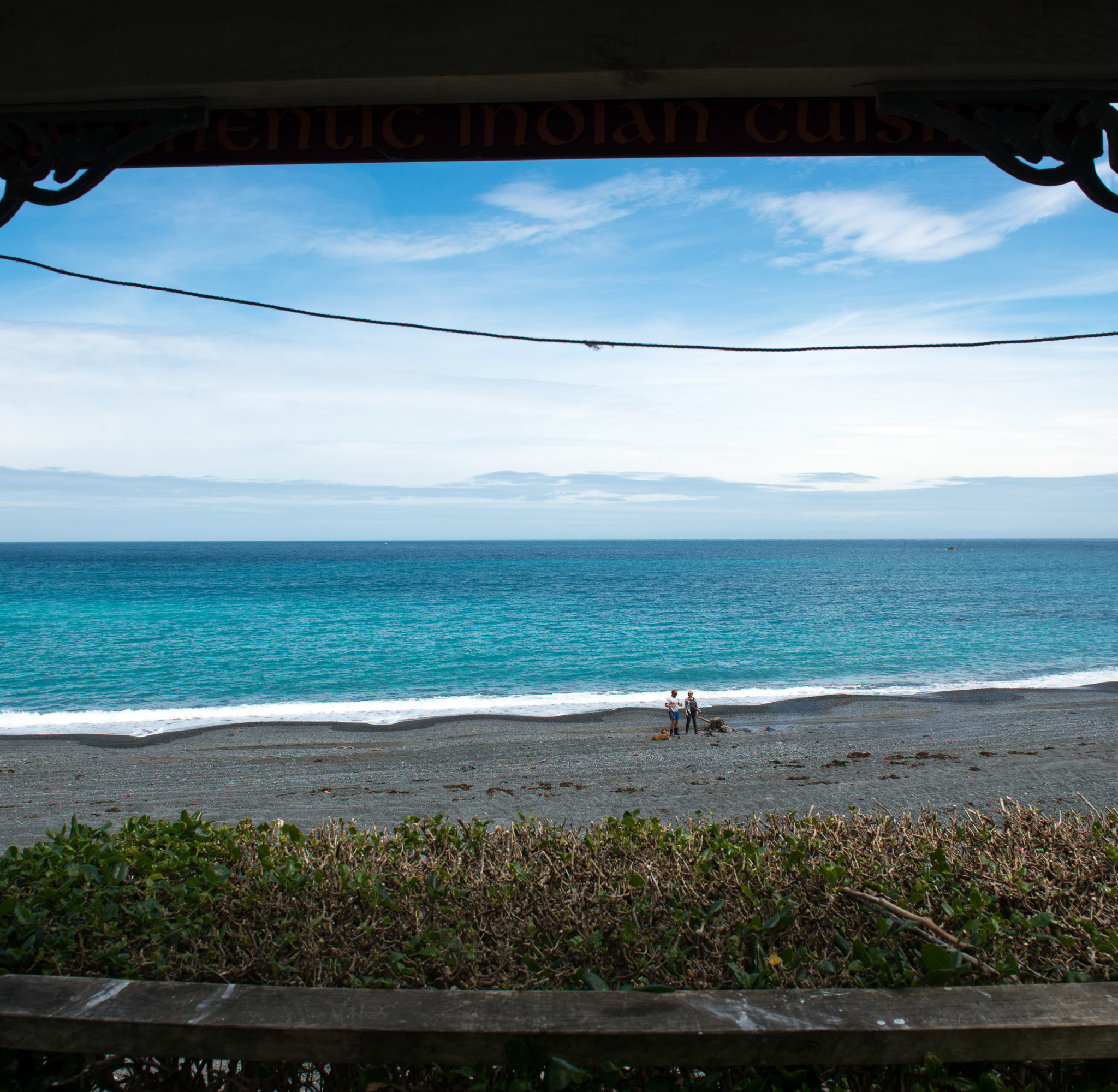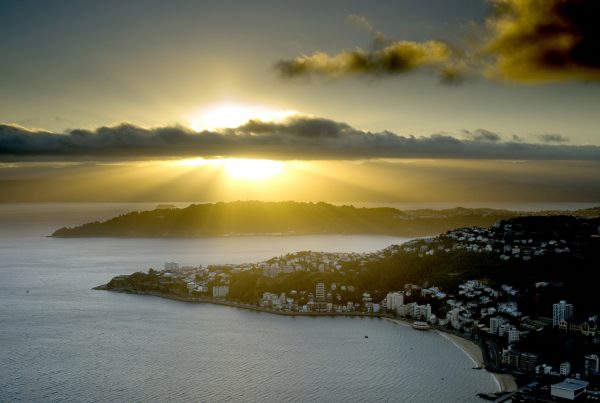Wellington’s south coast is a wild, rugged, windswept place. It is worn by the forces of the Pacific Ocean, which at times throw furious waves and howling winds at the shore. It’s an attractive place for people looking to escape the capital and get away from it all – at least for an afternoon. However, some who travel out to the widest margins from Wellington aren’t there for day trips. Nestled in the crooks and hollows of the hills are small huts and iron sheds without road access or many of the trappings of civilisation: baches.
These baches are passed on from generation to generation, and for owner Damian McCulloch the structures aren’t just iron and timber. The bones of his bach are also the bones of his family. It is a journey started by his father and carried on by him – and that he hopes will be carried on in turn by his children too. “I was first taken around there when I was six weeks old, on the back of a busted old Land Rover. I guess the bach has just been a sanctuary for us to just get away from everything. Once you get around there, all the worries in the world sort of disappear.”
It’s also more than just family history. The bach owners firmly believe they’re preserving New Zealand’s history. McCulloch says it’s a way of life that should be protected. “That is the original Kiwi bach. You don’t have to take your shoes off when you walk in the door. It doesn’t matter if you drop your glass of beer on the ground; you just sweep it out the door. You don’t have to worry about the carpet and things like that.”
Neighbour Murray Martin believes the baches represent a bygone era. “There’s a history right around New Zealand, particularly in the coastal areas, but also in the bush areas, where people just squatted. If they wanted to build a structure there, they just did it. The rules weren’t quite the same as they are now.”
The origins of the baches go back many decades, with some built in the early 1900s and others constructed up until the 1960s. Martin says constructing them was a painstaking task for many of the founders. They are in many ways monuments of toil. “Most of those baches were built by people who carried materials around on packs or by bike. You’re talking about the old Land Rover days here, and even then vehicles were a luxury. The stuff was taken around there by hand, built by hand. The concrete was mixed off the beach.” A leftover from the Second World War played a big part in the construction of many of the baches in the most inaccessible spots: an old armoured personnel carrier was used to carry building goods around the bluffs, when shoulders were too sore or tired to take the load.
McCulloch says it takes a special type of person to own one of the baches – primarily because of the challenges put up by the remoteness and tough environment. Stubbornness and resourcefulness are part of that. “I guess it is people who have got a passion for the simpler times in life. I mean, everyone is always in such a hurry to be somewhere these days and you’ve always got something to do. I guess if you want a place where you can actually kick back and not do anything if you don’t want to, that’s where you get the passion to keep these places.”
A unique community has developed among the bach owners. They knuckle down to help each other out, banding together to get work done when there’s a need to do it. It’s a cooperative type of lifestyle not often seen in modern New Zealand. That is, for McCulloch, one of the beautiful aspects of the place. “You don’t find any problems. Generally, most of the bach owners have known each other through the generations. We met all the other bach owners through our parents who were mates, and it’s just grown from there.” Lifelong connections have been forged over reroofing huts or nailing down loose iron – and, of course, having a good time. “You just do anything for each other, that’s just the way it is. If there is another bach owner that needs a bit of work done on their place, you go and help them. And you have a beer with them while doing it.” Martin agrees – though not without a little cheek. “We all try to help each other out. And we all just respect each. Some of them are on top of each other; there’s three of us right all together there, quite close. You’ve got to love your neighbour, no matter how much they drink.”
With the ocean right on the doorstep, there are always fresh offerings from the waves – something McCulloch’s keen on taking advantage of. “We cast off and I do a bit of snorkelling. My kids are at that age where I’m getting them into it too.” However, it’s not only fish or shellfish that are on offer – the ocean also holds a few surprises. “There’s been the odd thing. The odd body. My father found a big giant squid years ago, he told me; it’s one of the ones that’s in the museum now. There’s always different stuff washing up off Japanese fishing boats. You name it, it’s washed up around here.”
One might imagine the positives of the spot would also be an attractive proposition for developers or investors. Luckily though – in McCulloch’s eyes – that door is firmly closed. “You’re not actually allowed to build around here anymore. We’re not allowed to add on to our baches or anything. Now with the way things are with conservation you can’t go and plonk a building anywhere.” Martin says there are few options for anyone interested in getting a stake. “Some are sold but that’s very, very rare. There was one closer to the road end that was sold on, but it was only because the elderly couple both died and they didn’t have any family. Someone else took over the running of it. But generally they just stay in the family. The only other option is if you have a bach on private land and if you’ve got the landowner’s permission.” The buildings already in place and built either with permission or without have escaped the modern constraints of things like district plans.
The bach owners are used to sharing the area with an increasingly intrepid public. McCulloch explains that it’s a lot busier now. “Everyone’s got a four-wheel drive these days and so there’s a lot more traffic around here. It’s not like the old days when it was a bit like the Wild West.” Mountain bikers, trail riders and walkers also frequent the area, popular for its stark natural beauty and rugged environment. Martin has sat in front of his bach watching the crowds of walkers and mountain bikers grow over the years. “When I first started going out there, sometimes you wouldn’t see anyone for a couple of weeks. But with more publicity more people want to have a look. You just have to live with it.” McCulloch says he and other bach owners aren’t competing with the public to keep the area quiet – and in fact argues that it was the bach owners who have enabled people to enjoy it. The south coast is a spot he believes should be enjoyed by all. “My parents went through it all before – battling councils and stuff to keep those tracks open so they can be used by the public. And we’d do it all again, but hopefully it never comes to that.”
The bach owners enjoy a slow life, but sometimes they are in the right place at the right time – in emergencies. McCulloch says he’s always happy to help if called on. “We’ve rescued divers before and helped police search and rescue. Just on the weekend there was a walker, some tourist who had gone further than they thought it was. We set them up with water and sent them on their way.”
McCulloch sees himself as a caretaker of sorts – keeping history alive so that it can be enjoyed by future generations. “All our kids are into iPods and PlayStations. We come around here and they don’t even ask for it because they know it’s not here. All we’ve got is a solar panel that runs 12-volt lights and a car radio. That’s the power you’ve got. So they go outside and climb the hills, light fires or go fishing. Too many kids don’t get a chance to do that. Now I can teach my kids how to fillet fish. We’re constantly taking different kids around there, all my sons’ friends. I get a kick out of that now; that’s what I had growing up and now I can give it back to other kids.”
How long would the bach owners want to hold on to the dream? McCulloch says it’s an easy answer: for ever. “We would fight hammer and nail to keep it. That’s just how passionate we are about that sort of lifestyle. Where else in the world or New Zealand can you have a lifestyle like that, where you’re so close to a city but in the middle of nowhere?” Martin’s optimistic that the baches will be left to the wind and brine. “We’ve got a good relationship with the Wellington City Council now and the landowners. We’ve had our issues, but we’ve sorted that. We can now all live peacefully ever after – fingers crossed.”
Ultimately though, the McCulloch family and other bach owners out on the exposed south coast just want to be allowed to continue in their escape from the world. McCulloch’s happy that the world knows about the baches and that people stop in for a beer from time to time. But he says that way of life should be left how it is – a living monument, and a part of Wellington’s history. “We’re happy to just disappear into the background and not be heard of and seen, if you know what I mean.”
[info]
South coast baches: a rough history
There are already baches that have gained Historic Places Trust status: four at Red Rocks and a cluster at Mestanes Bay have been registered since 2002. In terms of historic value, the Red Rocks baches have retained their originality – unlike baches in a number of other parts of New Zealand. Paul Thompson, in his book The Bach (1985), says, “The humble nature of the Wellington region’s baches suggests that the owners… made a deliberate decision to accept simplicity, to have a place, free of pretensions, where they could escape to.”
The south coast is also an area long used by Wellington’s residents. A fortified pā, or stockade village, is thought to have been built in the area by Māori, and a land survey plan in 1843 marked ‘fishing huts’ in the area. One of the baches was used during the Second World War to store goods and provisions for a fortified observation post above Sinclair Point. A cableway anchored to the shoreline carried goods to the ridgeline above the bach.
Owner Damian McCulloch is of a view that all the baches may one day have to be given protection in order to preserve what’s so deeply important to his family. “At the end of the day, that’s where it would have to go for all of them. There are a lot of different characters in those places. There are people from doctors and lawyers to dentists and concrete layers. People from all aspects of life use those places.” Bach neighbour Murray Martin endorses the idea of expanding the protection for all of the baches – and he believes it is inevitable. “I have discussed it with council. It’s a possibility. It protects all interested parties I think. It means we can’t alter the baches, and it means demolition can’t be ordered on them. It is probably the best way to go I think.”
[/info]
